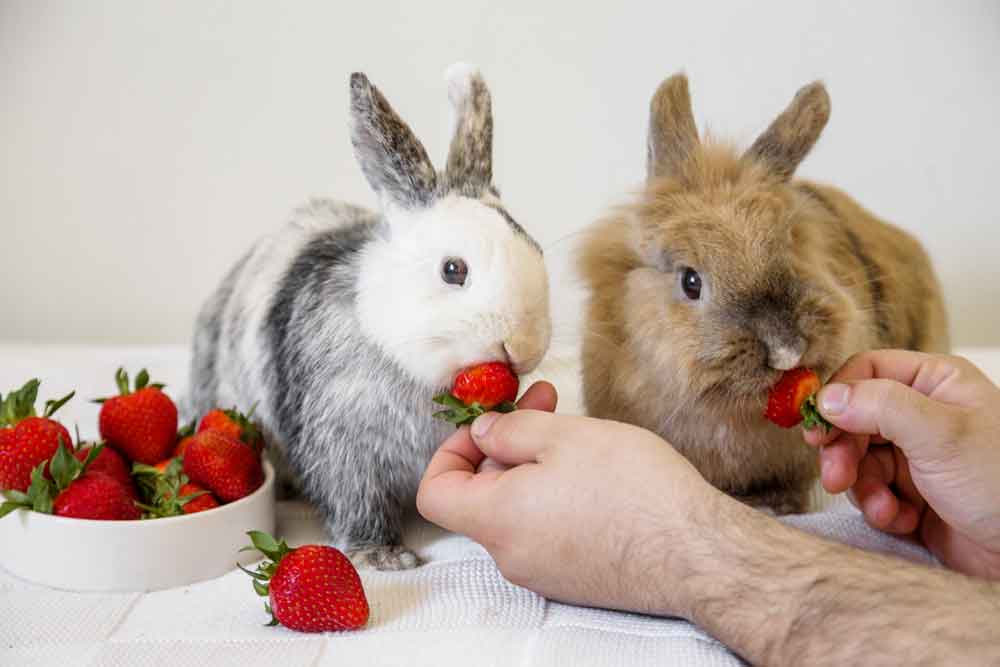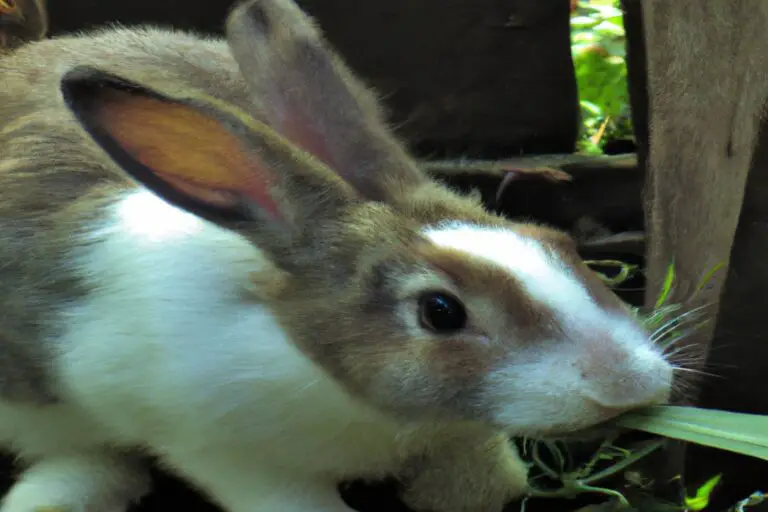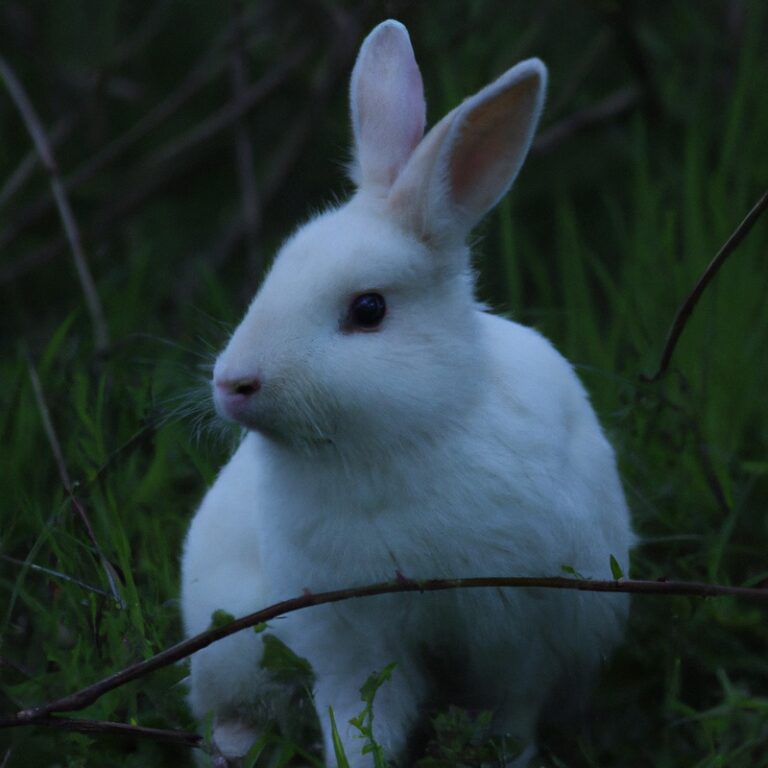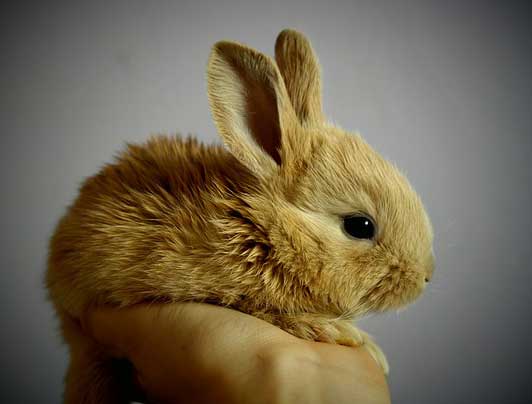What Fruit Can Rabbits Eat? Complete Checklist
Nutrition is essential for every living organism. It supports enhancing their growth and development. If you are a pet parent, you must know the importance of your pet’s health.
Maintenance is essential to avoid deficiencies later. Nutrition does not mean eating three or four times a day. But emphasizes on having a wholesome meal to fulfill nutritional requirements.
For pets like rabbits, it is a general concept that they eat only carrots. You immediately idealize a picture of a carrot with that of a rabbit’s image. Yet, it is not the case; the main ingredient in the meal is hay.
Apart from it, you may also provide them with selected fruits, vegetables, and herbs.
What fruits can rabbits eat?
Fresh fruits are essential for a rabbit apart from hay and herbs. Along with nutritional value, fruits are delectable. But it is vital to provide fruits in a limited quantity. You must also keep a check on the fruits that you must avoid. Rabbits need only a minimal amount of fruits throughout the week.
Being a pet parent to a rabbit, you must keep a note on the various fruits that you can feed him. Until a certain age, try feeding him yourself. It will help you improve your bonding. But while on maturity, ensure that they eat on their own.
The below-mentioned list will provide you an ultimate guide. This guide will help you refer when you feed fruits to your rabbit:
Quantity:
The digestive system of a rabbit is not like a human. So they cannot eat fruits in the same amount as we do. Fruits have sugar content in it. A high intake of sugar is not suitable for the body. You can limit the fruit intake to two tablespoons a day. Excess amount of sugar intake may lead to:
- Toxicity
- Weight issues
- Indigestion
- Serious health deterioration
- Death
Span:
If you are introducing fruits to your bunny, make sure to keep a span of at least three to four days a week. In other words, feed fruits to your rabbit for not more than two to three times a week.
Safety:
Ensure to exclude the parts of fruits with choking hazards. Apart from the central pulp, a fruit contains stems, seeds, spikes, etc. If you do not cut out these parts, it may stick in the throat.
Remove the peel if you feel it might not be chewable. You should also know which fruits are safe to consume and which are not.

Checklist of Fruits for Rabbits
Let’s look at the list below to enlighten on the same in details:
1. Apples:
Apples are rich in fiber, potassium, and antioxidants and are safe for rabbit consumption.
- In rabbits, apples are beneficial for promoting healthy and soft skin.
- Eating apples in extra quantities may harm the child.
- Prefer purchasing from local fruits’ sellers. The ones at the store have growth enhancers like pesticides and herbicides. These chemicals are harmful for consumption.
- Ensure to peel off the skin and remove the seeds.
2. Apricots:
With nutrients like vitamins A and C, you may provide your bunny apricots.
- They like eating them, which in turn provides them with antioxidants. You may use apricots as an alternative to treats on successful training sessions.
- For first-timers, introduce it in minute amounts and keep patience to watch if there are any allergies.
- Do not provide apricots to newborn bunnies.
- A rabbit older than 12 weeks can consume them. But avoid the leaves and stems, as they are toxic for the body.
3. Bananas:
One of the safest fruits is a banana for a rabbit. Although you may provide them with their regular meal, they may gain weight. Stick to the routine and avoid health issues. A rabbit with a weight of around 5 pounds can eat only one teaspoon of banana.
4. Berries:
Any berry-like blueberries, strawberries are fit to consume. Remember to provide only one or two pieces at a time. Feed them only one type of berry at a time.
5. Cherries:
Since the seed, pit and leaves contain toxic materials. These areas have cyanide in them, which is unfit for consumption. Thus, it is better to avoid cherries.
6. Mangoes:
Mangoes, being the king of fruits, are not toxic for rabbit consumption. It gives a taste of change from the regular diet. But do not make that a habit. Or else, your bunny will gain excess sugar and calories.
Peel off the skin of the mango, create a smash, and then feed your bunny. Minerals and antioxidants should not replace daily, home-made food.
7. Melons:
Use the nutrients content in cantaloupe melons. Bunnies can consume melons without any hesitation. But to ensure safety, make sure to provide only one or two teaspoons.
They serve as an alternative to those bunnies who do not ingest adequate water. It is safe to consume leaves and flowers of melons. Do not exceed the quantity suitable for one day.
8. Pineapples:
They provide many health benefits for consumption by rabbits. Ensure to follow the limitations to avoid an adverse reaction.
Pineapples contain carbohydrates, fiber, fat, and protein. Thus, serving them pineapples during the season will keep them healthy.
Excess consumption may cause gastritis and bloat. They will feel stressed and may have behavioral changes. Avoid feeding pineapples to baby bunnies. It may disrupt their natural digestion procedures.
9. Watermelons:
They have adequate sugar content. Thus, rabbit’s consumption should be in minimum amount. They are safe for adult bunnies and not for the young ones.
If your bunny completes a milestone in training or any other activity, you can provide watermelon as a treat. Do not let it have as a meal because of their delicate digestive system.
10. Oranges:
Although oranges are safe, it is better to maintain a diet limit for a rabbit’s health. To encourage them to eat their regular meal, you can use oranges as a part of treats.
Rabbits can prepare vitamin-C within itself. Relying on oranges is not a necessity. But being high in sugar content, they are apt only for occasional treats.
These fruits mentioned above are readily available. They will provide you an idea of the necessities and the toxicities.

Tips that you must keep in mind while feeding fruits to your rabbit
- A new parent of a rabbit should not experiment with their feeding habits.
- Keep the quantity of each fruit supply to a minimal amount.
- Ensure a gap of at least two days.
- Do not feed fruits every day.
- While introducing a new fruit, give it time to digest. You may wait for the next 72 hours to exhibit allergies or dysfunction.
- Avoid those fruits which are allergic.
- In case of accidental intake of a considerable quantity of fruits, contact a doctor.
- Ingesting toxic seeds stems or twigs may have adverse effects. Call up the nearest toxic, controlling center for the necessary first-aid.
- Do not introduce fruits to a newborn. Fruits are suitable for those above the age of 12 weeks.
Keep a regular check on the health of a rabbit. Providing a rabbit with a healthy and nutritional diet is vital. Rabbits tend to gain weight, thus track the same.
Keep the main ingredient as hay, which you can avail of from local farmers. Fruits, too, should belong to local produce. They are safe from chemicals and artificial colors.
Since rabbits have a sensitive digestive system, they need special attention in meals. It is better to keep a strict rule of maintaining the number of fruits. It will keep the sugar level on average and also body weight.
Consult a veterinarian in case of allergies or stomach issues. Ask your doctor to provide you a chart for sick bunnies. Apart from hay and fruits, do not avoid pellets, leafy vegetables, and consumable herbs.







